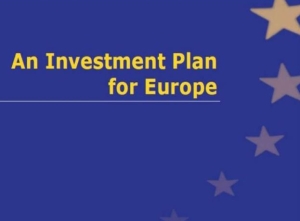Analytics, EU – Baltic States, Good for Business, Investments, Markets and Companies, Modern EU
International Internet Magazine. Baltic States news & analytics
Tuesday, 23.12.2025, 04:44
EU’s international cooperation and development aid: business opportunities
 Print version
Print versionThe
European Commission wishes to invite eligible financial institutions, such as development
banks, to present their concrete proposals for investment programmes within the
five areas mentioned below. After an assessment by
the Commission and independent experts, a number of selected
financial institutions will be entrusted with managing these investment
programmes. The first agreements with such financial institutions are expected
to be signed in the first half of 2018.
Commission’s opinion
 |
|---|
EU
High Representative/Commission Vice-President Federica Mogherini underlined that the European External Investment Plan (EEIP) has
been the largest ever investment programme for Africa. Presently, only four per
cent of total global foreign direct investment goes to Africa.
With the European External Investment Plan, the EU can
raise at least €44 billion in private investment by 2020, notably for the most
fragile parts of the African continent. This is a strong signal of the
strengthened partnership with Africa, which is going to be reviewed at the EU-Africa
Summit at the end of November 2017.
Commissioner
for International Cooperation and Development Neven Mimica added that the Commission’s present decision the EU was setting the agenda for
sustainable investments. Unlocking the potential of sustainable energy,
promoting digitalisation for development or supporting micro, small and medium
sized enterprises will help to create sustainable development and reduce
poverty on African continent.
Commissioner
for European Neighbourhood Policy and Enlargement Negotiations, Johannes Hahn commented
that the investment areas represent
real opportunities for businesses and social partners in the EU states,
including private and public sectors. Securing a good climate for cooperation,
these investments will contribute to sustainable growth; therefore EEIP is
expected to bring tangible results providing for job creation and greater
competitiveness, stronger economy, governance, connectivity, and stronger
societies.
Five main spheres of investment
The
European Commission defined five main areas of investment, so-called
"investment windows", in which the actions of the External Investment
Plan (EIP) will be implemented. These investment areas are crucial for the
sustainable development in countries in Africa and the EU Neighbourhood countries.
The
five investment windows include:
·
"Sustainable energy
and connectivity":
aimed at attracting investments in renewable energy, energy efficiency and
transport.
·
"Micro, small and medium
sized enterprises (MSMEs) financing": aimed at improving MSME's access to
finance. Such kinds of businesses are the main employers in Africa and the EU
Neighbourhood states, and offer important and more sustainable alternatives to
the informal economy.
·
"Sustainable agriculture,
rural entrepreneurs and agro-business": aimed at providing better access to
finance for smallholders, cooperatives and micro, small and medium sized
enterprises in agro-business sectors. This investment will allow addressing
food security issues.
·
"Sustainable cities": aimed at mobilise
investments in sustainable urban development of municipal infrastructure,
including urban mobility, water, sanitation, waste management, renewable energy
services.
·
"Digital agenda for
development":
aimed at promoting investments in innovative digital solutions for local needs,
financial inclusion and decent job creation.
Guiding information for entrepreneurs
Businesses
and organisations, which would like to benefit from support under the External Investment
Plan EIP, will then be able to contact these financial institutions with their
project proposals.
A
dedicated EIP secretariat and a web portal will help to guide interested
businesses.
Projects
have to have a clear sustainable development objective and contribute to
economic and social development, with a focus on sustainability and job
creation, particularly for youth and women.
Investment
proposals should provide adequate risk sharing, be economically and financially
viable, as well as socially and environmentally sustainable. They have to
address market failures or sub-optimal investment situations and must not
distort market competition.
More information in the following websites: = EIP Website with
email address and the Manual (once approved) will be available on the EIP
Website; = Q&A about
the European External Investment Plan; = Press release on
the formal adoption of the EIP; = More details on
pillar assessment
http://europa.eu/rapid/press-release_IP-17-4884_en.htm?locale=en








 «The Baltic Course» Is Sold and Stays in Business!
«The Baltic Course» Is Sold and Stays in Business!

